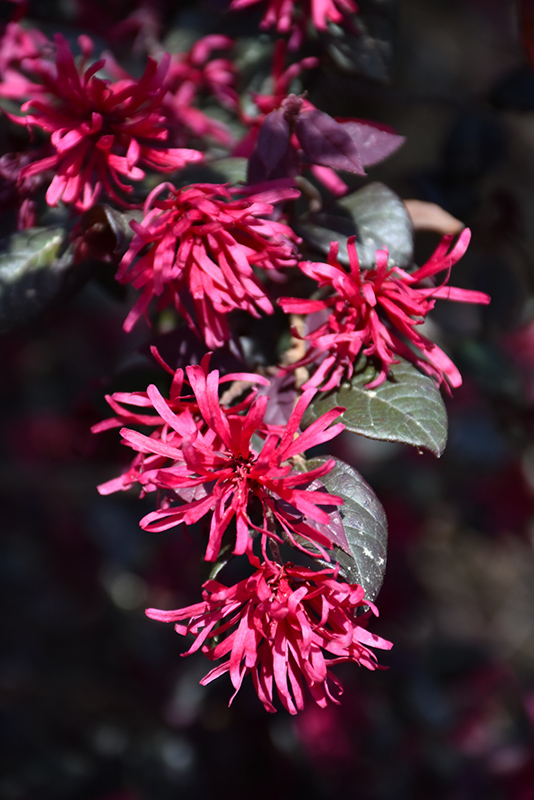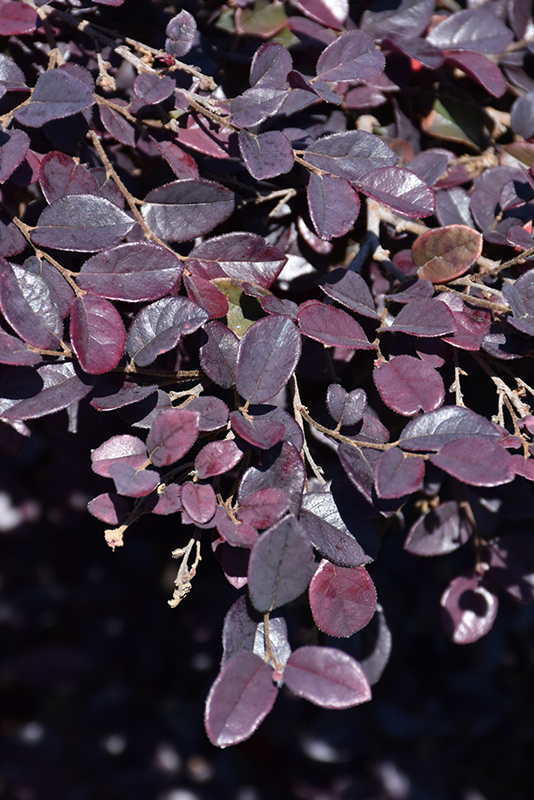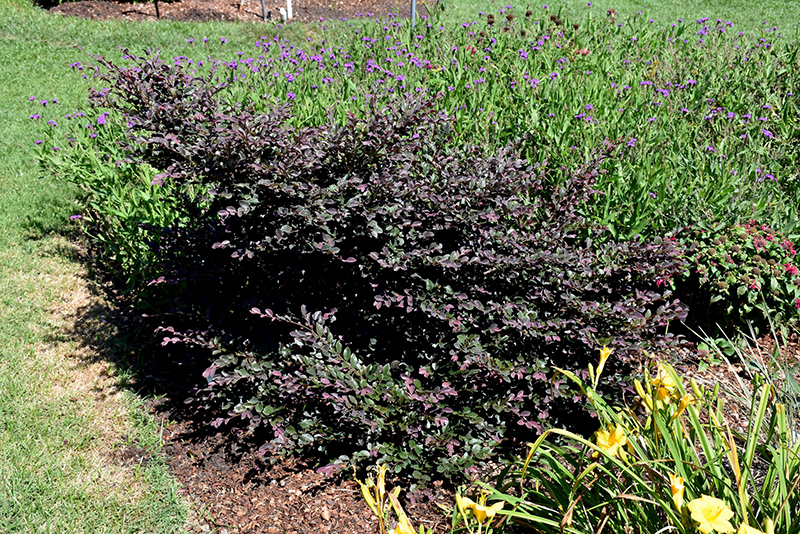>> Home
Sparkling Sangria™ Chinese Fringeflower
Loropetalum chinense 'PIILC-II'
Height: 10 feet
Spread: 10 feet
Sunlight:
![]()
![]()
Hardiness Zone: 7
Other Names: Chinese Fringe Flower, Chinese Witch Hazel
Brand: First Editions
Description:
This selection forms a large shrub with electric pink, strap-like flowers covering the plant in spring; pinkish-purple new foliage that matures to burgundy adds great texture and contrast; an easy to grow and well-behaved shrub for general garden use
Ornamental Features
Sparkling Sangria™ Chinese Fringeflower is draped in stunning fragrant hot pink strap-like flowers with red overtones along the branches from early to mid spring. It has attractive burgundy foliage with hints of olive green which emerges fuchsia in spring. The oval leaves are highly ornamental and remain burgundy throughout the winter.
Landscape Attributes
Sparkling Sangria™ Chinese Fringeflower is a multi-stemmed evergreen shrub with an upright spreading habit of growth. Its relatively fine texture sets it apart from other landscape plants with less refined foliage.
This is a relatively low maintenance shrub, and should only be pruned after flowering to avoid removing any of the current season's flowers. It has no significant negative characteristics.
Sparkling Sangria™ Chinese Fringeflower is recommended for the following landscape applications;
- Accent
- Mass Planting
- Hedges/Screening
- General Garden Use
Planting & Growing
Sparkling Sangria™ Chinese Fringeflower will grow to be about 10 feet tall at maturity, with a spread of 10 feet. It has a low canopy, and is suitable for planting under power lines. It grows at a fast rate, and under ideal conditions can be expected to live for 40 years or more.
This shrub does best in full sun to partial shade. It prefers to grow in average to moist conditions, and shouldn't be allowed to dry out. It may require supplemental watering during periods of drought or extended heat. It is particular about its soil conditions, with a strong preference for rich, acidic soils. It is somewhat tolerant of urban pollution. Consider applying a thick mulch around the root zone in winter to protect it in exposed locations or colder microclimates. This is a selected variety of a species not originally from North America.


